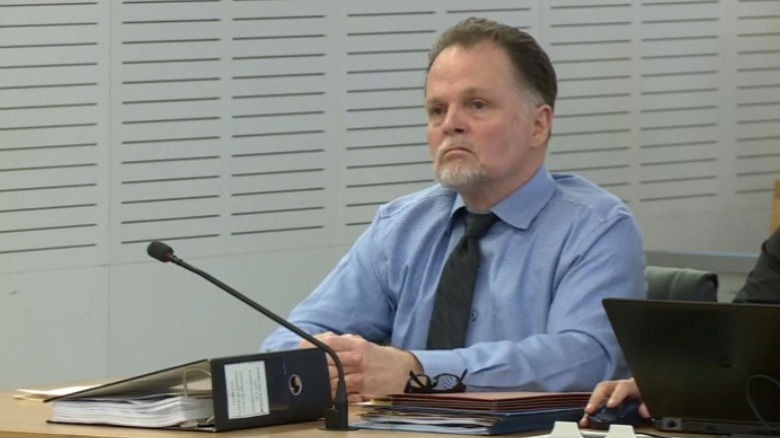The Mystery Behind The Missing McStay Family Explained
Detectives didn't know what to make of the scene when they searched the McStay family home in Fallbrook, California, in February 2010. The family had gone missing a couple weeks earlier, but what they left behind didn't reveal any intentions of going on a long trip. Officers found bowls full of popcorn left out on the futon, and fruit, vegetables, and eggs rotting on the kitchen counter. According to the Los Angeles Times, there were no signs of a struggle, nothing suggesting forced entry. Detectives said it appeared as though they had left in a hurry.
Their SUV was found in a parking lot near the border with Mexico, and their home computer showed that they had looked up information about going to the country, including one search that read, "What documents do children need for traveling to Mexico?" But there was no other evidence to point to their having gone AWOL south of the border. The whereabouts of the McStays — Joseph, Summer, and their two young boys Gianni, 4, and Joseph Jr., 3 — remained unknown for more than three years. In the fall of 2013, a haunting discovery by a motorcyclist in the desert would help shine a light on what happened to the McStays.
The 'substantial evidence' that pointed to a former business partner of McStay's
The motorcyclist had found a skull belonging to a child. The remains of three other people, as well as a 3-pound sledgehammer, were unearthed at the scene, and they were found to be those of the McStay family. The Los Angeles Times continued following the story closely, and reported that DNA evidence led authorities to believe that the perpetrator of the gruesome crime was a former business associate of Joseph McStay named Charles "Chase" Merritt (pictured above). His DNA was found on the gear shift and steering wheel of the family's abandoned car. Merritt had also deposited checks from Joseph McStay amounting to thousands of dollars in the days following the family's disappearance. The checks had been written with the internet-based accounting program QuickBooks. Someone claiming to be Joseph McStay called QuickBooks four days after the family went missing and requested an account transfer and closure. The call was made from Merritt's cell phone.
While none of this served as a smoking gun to point to Merritt's guilt, the judge in the case said that the evidence "overwhelmingly" indicated that Merritt had committed the crime. His defense claimed that another former business partner of McStay's had a stronger motive for the murders, but the motive didn't amount to guilt. The Los Angeles Times noted that the jury found Merritt guilty of all the charges, and he was sentenced to death in January 2020.

